Auctions
As Christie’s and Sotheby’s Sell Dueling Basquiats This Week, Here Are the 10 Most Expensive Works by the Artist Ever (Publicly) Sold
The artist's works have proven to be wise investments.

The artist's works have proven to be wise investments.

Eileen Kinsella

Call it the battle of the Basquiats.
After years of rising prices and intensifying demand, the market for the beloved artist is now at a fever pitch.
This week, both Christie’s and Sotheby’s will feature major works by the sought-after Haitian-American artist, who died at 27 in 1988.
At Christie’s, it’s In This Case (1983), a large skull on a red background, with an unpublished estimate of about $50 million. It was reportedly consigned by fashion designer and cofounder of Valentino, Giancarlo Giammetti.
Meanwhile, Versus Medici (1982) will be part of Sotheby’s sale, where it is estimated to bring in between $35 million to $50 million.
Given that the existing record for Basquiat is over $110 million—you read that right—it may be a stretch to think the record could be broken this week.
But the estimates on the new offerings are quite likely to shake up the order for the priciest lots to date. Notably, the ten highest prices for the artist have all been achieved in the past eight years: Christie’s holds seven records, Sotheby’s two, and Phillips one.
And what are those lots? We’re glad you asked. Here’s a roundup of the top 10 priciest Basquiats ever to have sold at auction.
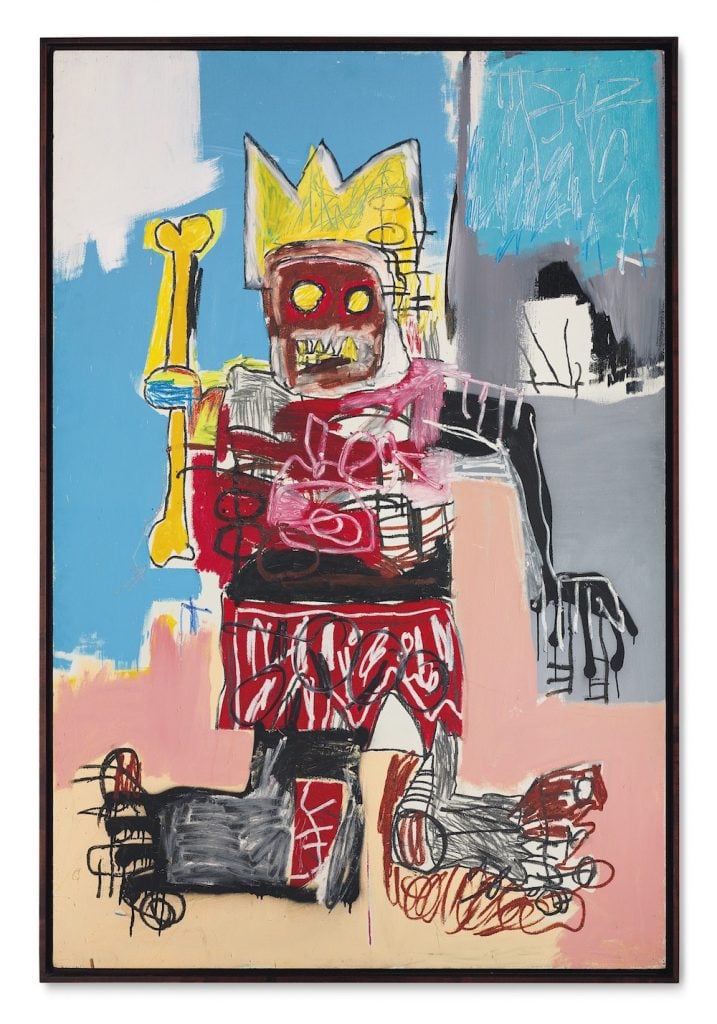
Jean-Michel Basquiat, Untitled (1982). Image courtesy Christie’s Images Ltd.
In this work, which the buyer subsequently loaned to a major Basquiat show at the Fondation Louis Vuitton in 2018, we see one of Basquiat’s signature crowned figures, a boxer sporting Everlast shorts. The artist grew up watching Joe Lewis, Muhammad Ali, and other top fighters on TV with his father, and boxers and warrior-like figures were a common theme in his work.
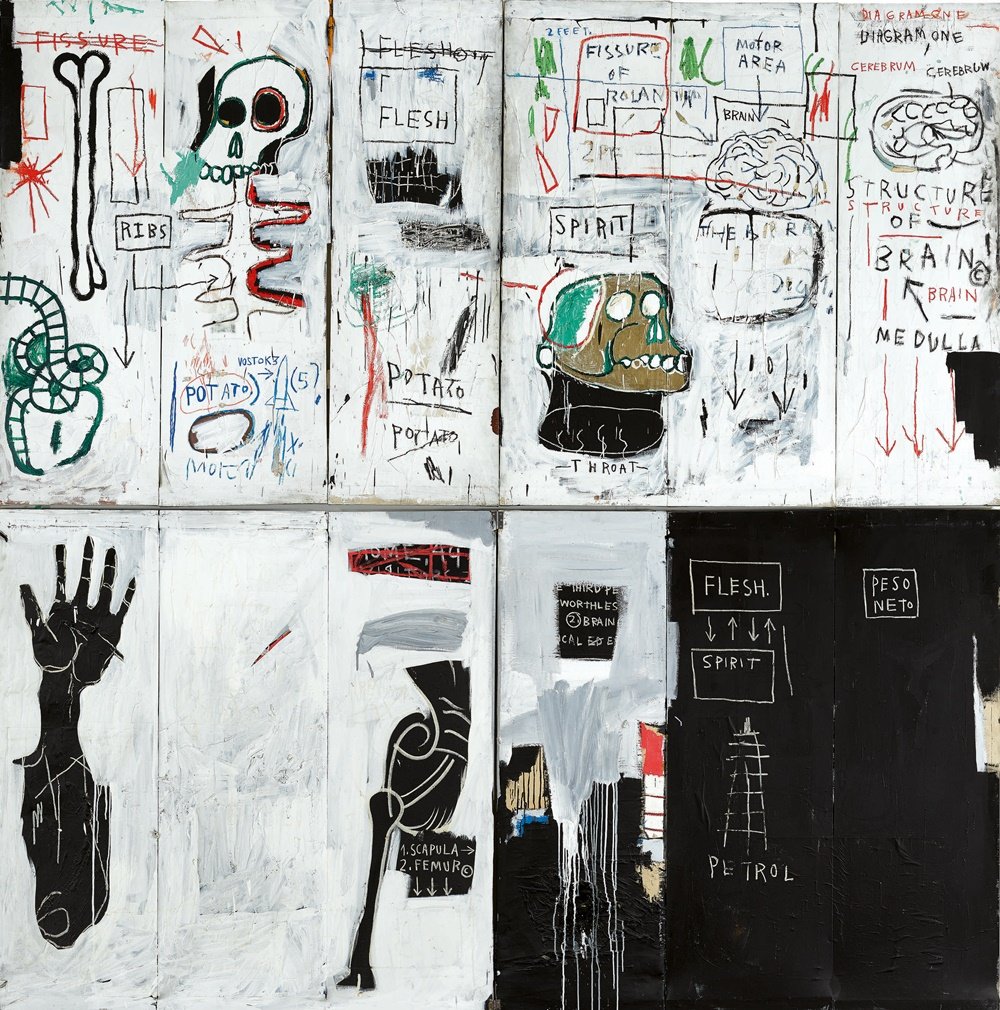
Jean-Michel Basquiat Flesh and Spirit (1982–83). Courtesy of Sotheby’s.
The title of this work is a reference to a 1983 book titled Flash of the Spirit by Robert Farris Thompson, widely considered a groundbreaking study of African religious traditions. Basquiat modeled the structure of the painting off the Kongo cosmogram, the primary symbol of Yoruba spiritual tradition. “The arrows of the cosmogram, echoed in the present work, symbolize the continuous movement of souls between the worlds of the living and the dead,” according to Sotheby’s.
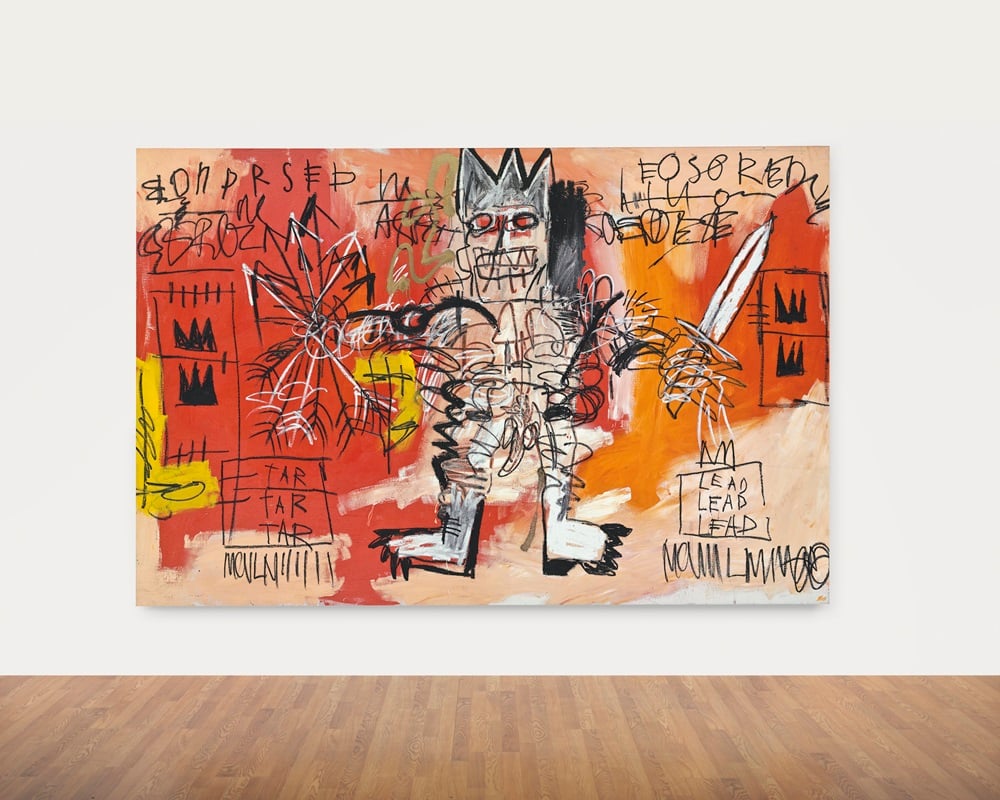
Jean-Michel Basquiat, Untitled (1981). Image courtesy Christie’s Images Ltd.
When this work was put up for sale in 2014, Christie’s called it a seminal painting that represented the artist’s “transition from underground street artist to art world icon.” The consignor, who acquired the piece from the Annina Nosei Gallery, got their hands on a classically scaled work made in the turning-point year of 1981. The fact that it’s brimming with the artist’s signature imagery, including a crowned figure brandishing a sword, graffiti-style phrasing, and bright orange tones, doesn’t hurt.
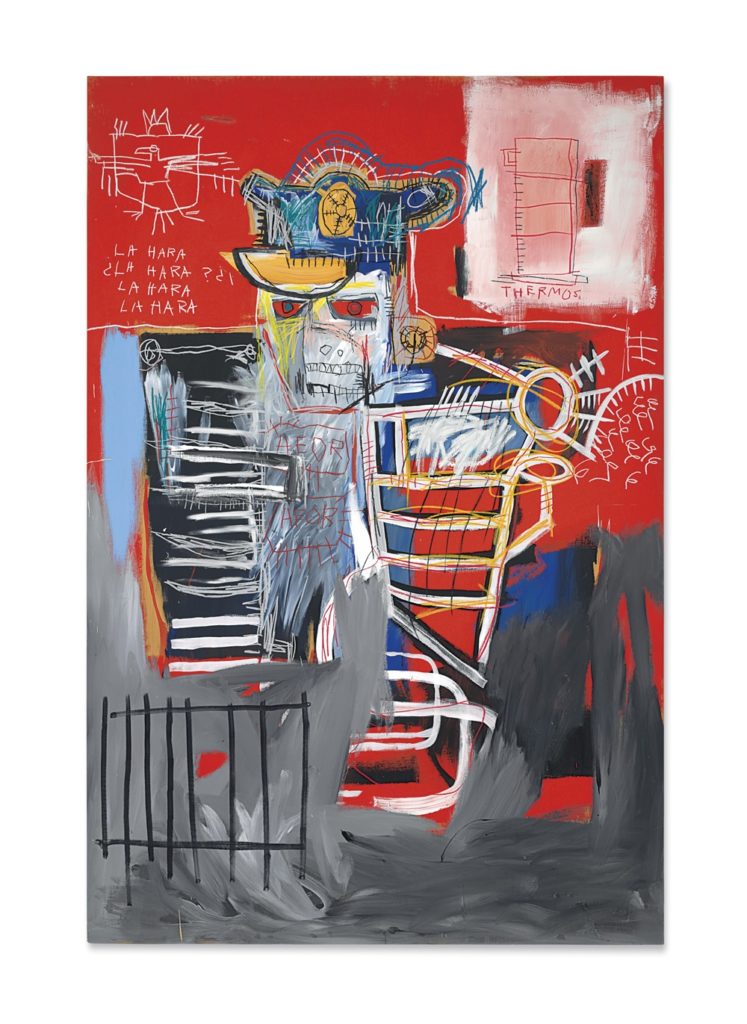
Top collector Steve Cohen was reportedly the consignor of this major Basquiat painting that Christie’s sold in May 2017 for just under $35 million, compared with an estimate of $22 million to $28 million. In a sign of how far the market for Basquiat had come at that time, the painting had only appeared at auction once before, nearly three decades earlier, when it sold at Sotheby’s New York for $341,000 in 1989, clearing the high end of the $250,000 to $300,000 estimate.
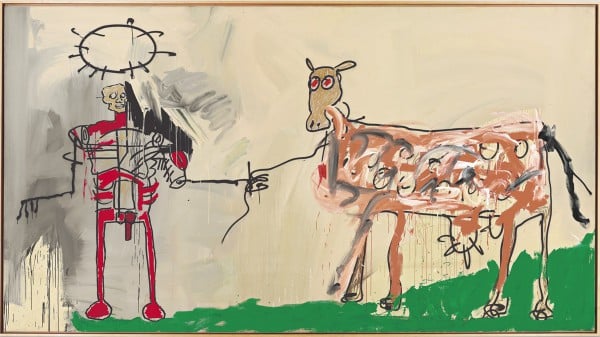
Jean-Michel Basquiat, The Field Next to the Other Road (1981). Photo courtesy Christie’s.
Another painting from a seminal year, this is one of the artist’s earliest monumental canvases. It measures over 13 feet across and includes one of his earliest fully realized human figures. Here, Basquiat depicts a meeting between man and beast. It was painted during a trip he took to Modena, Italy, for his first solo exhibition in Europe.
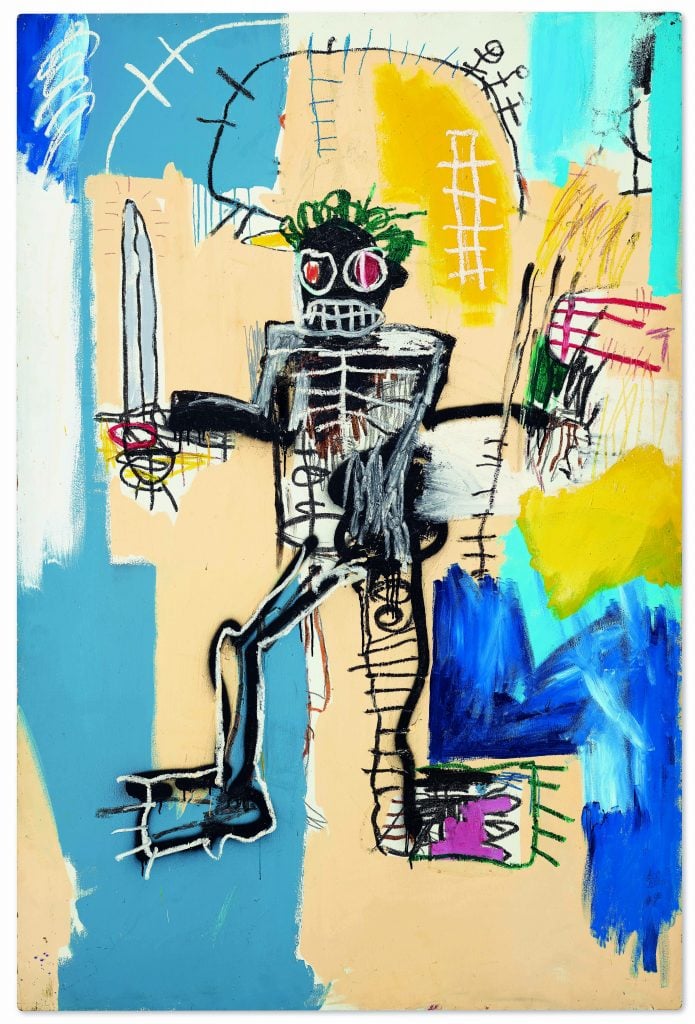
Jean-Michel Basquiat, Warrior (1982). Courtesy of Christie’s Images, Ltd.
This Basquiat auction high was recorded less than two months ago during a live-streamed sale at Christie’s Hong Kong, and marked a new record for a work of Western art in the Asian market. The picture is from 1982, Basquiat’s most coveted year, and depicts a full-length warrior figure, sword in hand. It last sold at Sotheby’s London in 2012 for $8.7 million. Before that, it had an active decade on the market, trading hands three times in seven years. Along the way, its price climbed some 450 percent. This latest sale marked a $30 million profit on the seller’s 2012 investment.
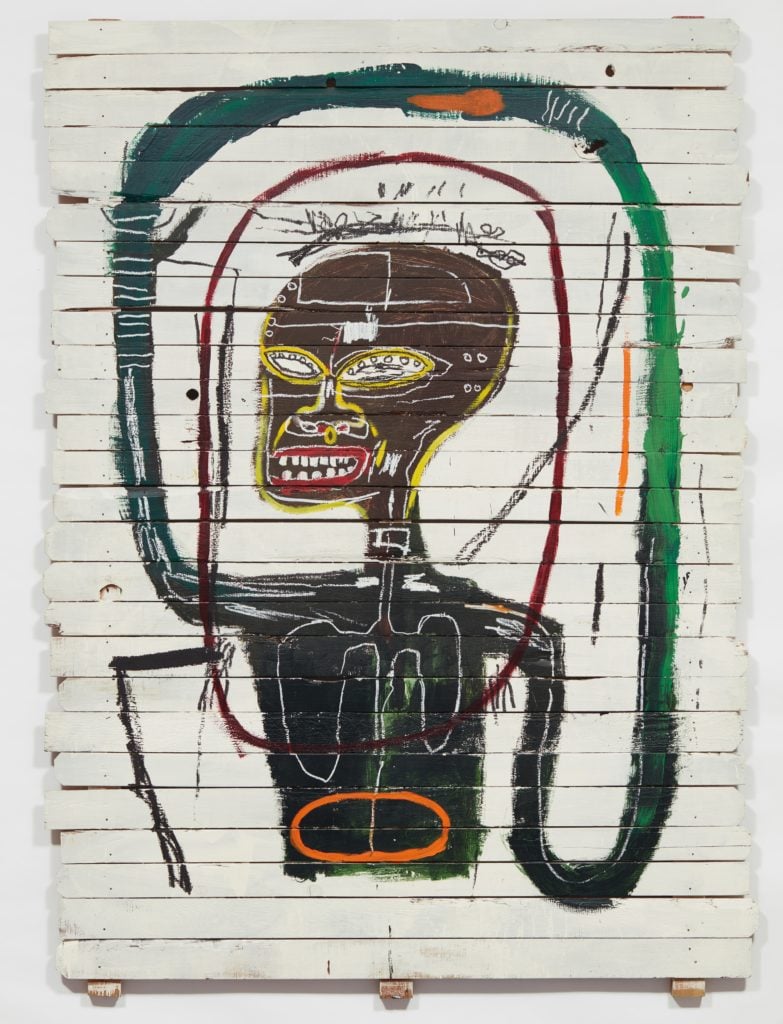
Jean-Michel Basquiat, Flexible (1984). Photo courtesy of Phillips.
When Basquiat was asked to define his art, he said it was about “royalty, heroism, and the streets,” according to the Phillips catalogue essay that accompanied the sale of this work. “In many ways, this artwork serves as a summation of these three central themes.” The figure Basquiat depicts in this painting is described as a king. His stance, with his arms raised and locked above his head, conveys confidence and assertiveness, as though the figure is crowning himself.
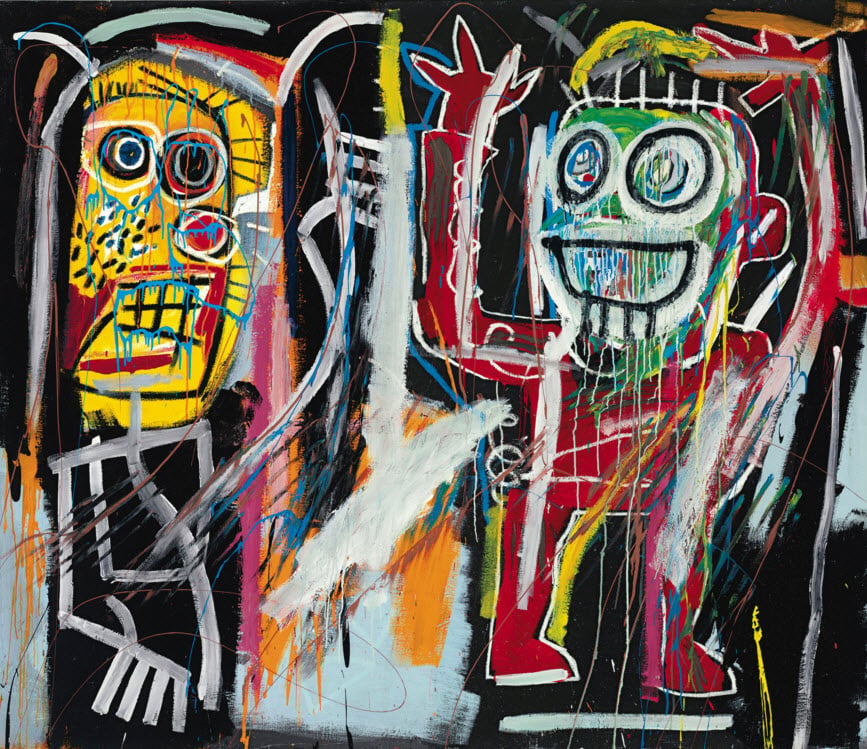
Jean-Michel Basquiat, Dustheads (1982). Courtesy of Christie’s Images, Ltd.
Disgraced Malaysian businessman and now international fugitive Jho Low was the buyer of this (at the time) record-setting Basquiat painting depicting two drug addicts. According to a Wall Street Journal report, in 2016, while under investigation for financial fraud, Low unloaded the painting for $35 million to Connecticut hedge fund manager Daniel Sundheim in a private deal brokered by Sotheby’s for $35 million, a steep 28 percent drop from what he paid just three years earlier.
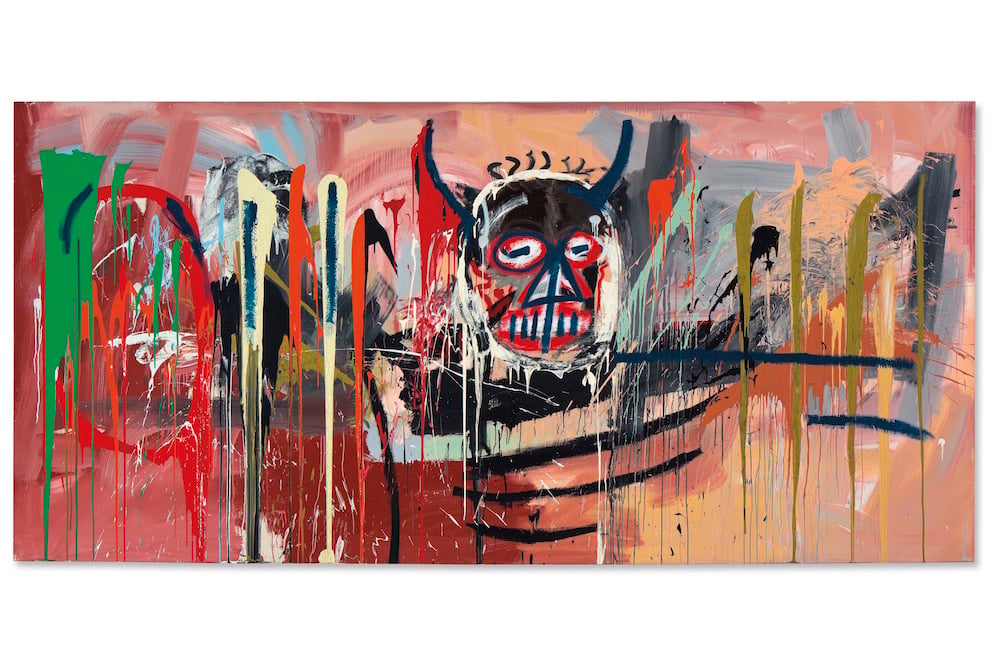
Jean-Michel Basquiat, Untitled (1982). Courtesy of Christie’s Images, Ltd.
A year before Yusaku Maezawa spent $110 million to buy the most expensive Basquiat ever sold at auction (see below), he purchased Untitled (1982) at Christie’s for $57.3 million. The large painting features the artist’s signature raw, graffiti style, here depicting a devil-like figure against a bright orange-red background. At the time, Maezawa shared a statement with Artnet News, saying: “When I encountered the [painting] at the Christie’s New York preview, I had an immediate visceral connection it. Generationally, I relate to Basquiat’s culture and the essence of his life story.”
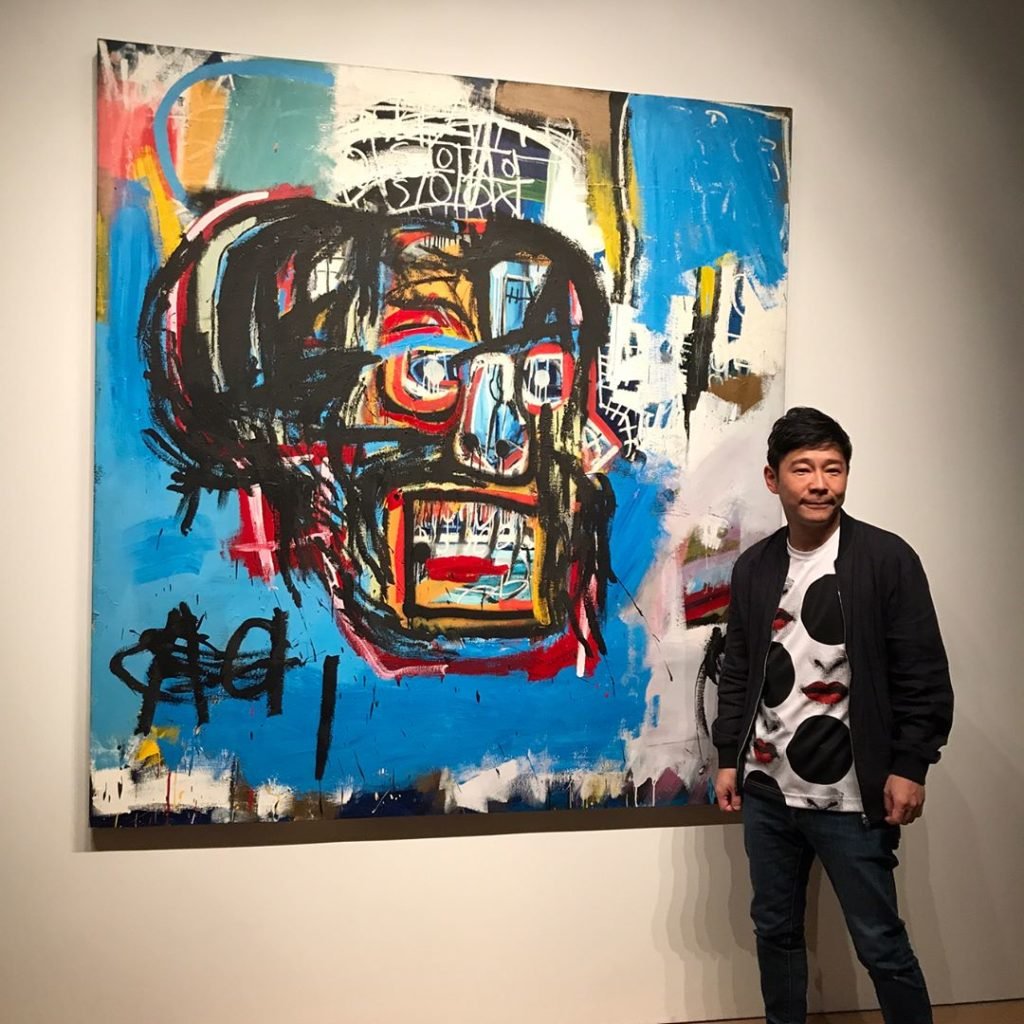
Collector Yusaku Maezawa with his record-setting purchase: Basquiat’s Untitled (1982). Courtesy of @yusaku2020
This untitled Basquiat painting from 1982 rocketed to $110.5 million at a Sotheby’s evening sale in May 2017, shattering into thousands of tiny little pieces the artist’s previous record. Shortly after the sale ended, Japanese collector Yusaku Maezawa, founder of e-commerce company Start Today and virtual mall Zozotown, announced via Instagram that he had bought the painting. He placed the winning bid through a Sotheby’s specialist after an 11-minute contest. Six months later, he loaned it to the Brooklyn Museum (in the same borough where the artist was born) for star billing in a show titled “One Basquiat.”